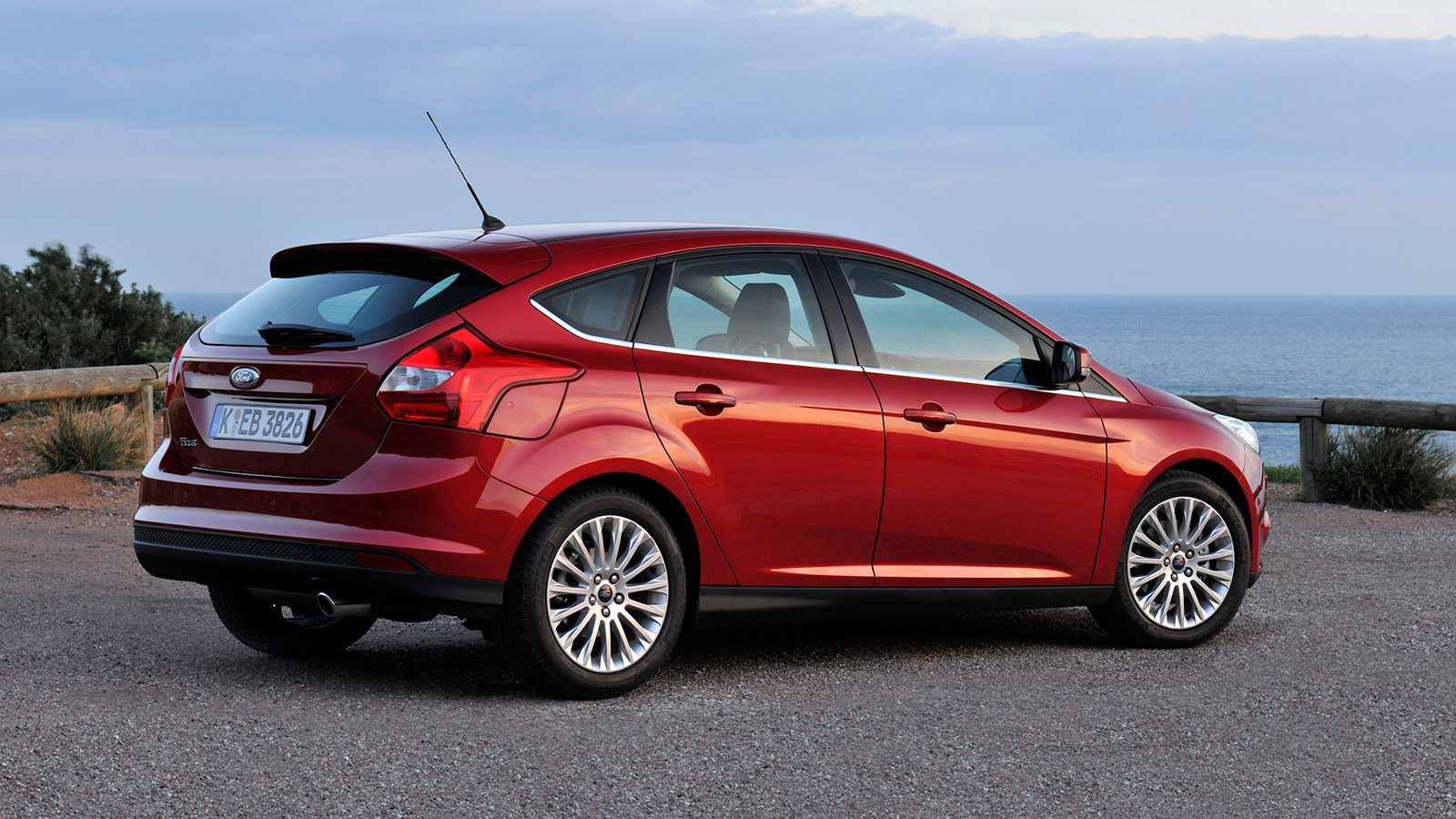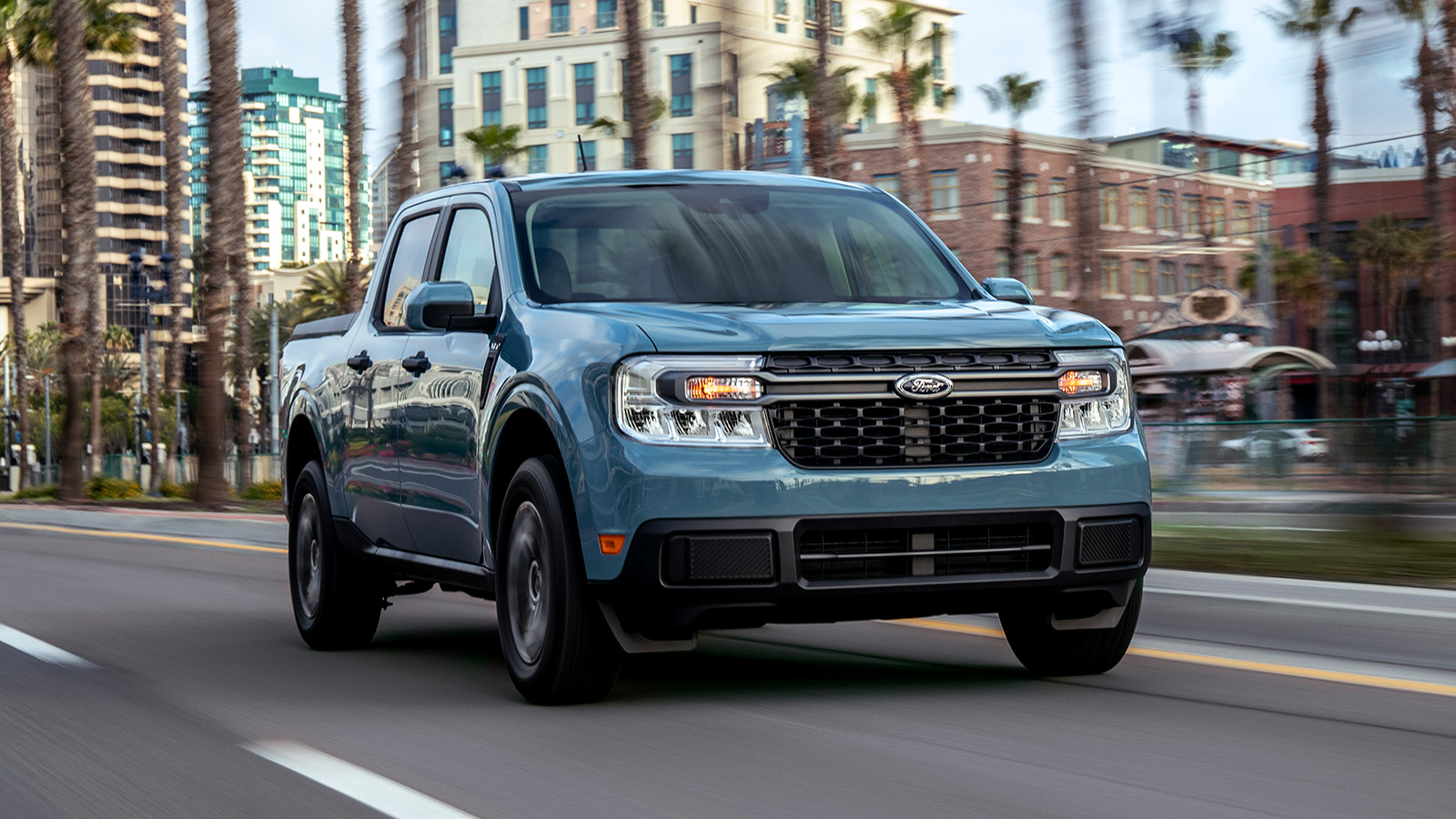The Ford Maverick Is A Great Truck — It's Also Part Of The Problem
Ford's ability to sell pickups to people who need cheap cars isn't a cause for celebration.
Nobody can build vehicles quickly enough, but Ford's especially feeling the pinch with the Maverick. The manufacturer paused new orders on its hot compact pickup until the summer because it needs to prioritize fulfilling reservations already placed. And listen — in spite of the headline up there that I'm well aware some of you are sharpening your axes over as you read this, let me just say that I get it. As a technical achievement, the Maverick deserves praise. A small truck that starts at $20,000 and returns 40 miles per gallon is something the world could use more of, especially given the present fuel catastrophe. I'm happy Ford made it.
The Maverick is special because it offers the low starting price and efficiency of a compact sedan, hatch or crossover in a pickup configuration. That's very exciting for the folks who need a vehicle that satisfies those conflicting demands.
But how many Maverick buyers actually do? A thread on the Maverick subreddit asking prospective owners what vehicles they'll be replacing with the entry-level truck comprises an assortment of interesting answers, with Civics, Fiestas, BMW 3 Series and Elantras chief among them. There are also full and midsize truck owners expressing a willingness to downsize and save at the pump, alongside folks with small crossovers that are looking for a little more utility.
Pickups are a funny thing, because they're irreplaceable for the people that actually need them yet actively impractical for those that don't. The vast majority of car buyers need a covered cargo area, not open-air beds that leave whatever they're schlepping vulnerable to the elements and necessitate tie-downs so contents don't slide about or fly away. The vast majority of people also prefer to save money.
Of course, there are cheap vehicles out there that excel at sipping fuel — even more so than the Maverick — are also inexpensive to buy and run and offer all the cargo space the average American requires. They're called cars, and I have to imagine many Maverick buyers would find their needs met by them. Unfortunately, Ford stopped making them years ago.
Ford won't admit that the Maverick is designed to fill the gap in its lineup vacated by the Focus or Fusion, but reading between the lines of comments made by Ford's chief product platform and operations officer Hau Thai-Tang to Muscle Cars & Trucks, it's hard to arrive at any other conclusion:
"No! It's not (replacing the Ford Fusion)," said Hau Thai-Tang in an interview with MC&T. "We looked at it as passenger vehicles are getting very commoditized, it's difficult for us to make money, how else can we use that capital and engineering capacity? We decided let's play to our strengths.
"What are we good at? Trucks. What do we need? An affordable, entry vehicle to bring first time buyers into the showroom," he said.
For almost the entire history of the automobile up until about 10 years ago, passenger cars were "affordable entry vehicles" that were great at bringing first-time buyers into showrooms. The most depressing thing about Thai-Tang's comment here is that Ford was actually competent at building them, when it wanted to be. I leased the last Focus we got here in the States, and have dailied a Fiesta ST for four years. They're delightful cars. Imperfect, sure, but what reasonably priced transportation isn't? They were also both products of Ford's European arm, which is why they were leagues better than the gloomy, tragically faced penalty box that was the 2008-11 Focus sold in North America.

Ford never figured out how to market those cars within their brand the way Japanese and Korean makes have, so it gave up trying. So too did GM and Chrysler, to an extent. It's depressing yet completely understandable from a business perspective. The Maverick is an especially shrewd play by Ford, because while it's hard to imagine the margins are any thicker on the low-end trims than they were on the typical Fiesta or Focus, the company stocks only the optional EcoBoost-equipped models on dealer lots. In this country it's awfully hard to upsell an economy car, but you can upsell a truck without even trying.
And therein lies the undercurrent that I think partially explains the Maverick's success and everyone's adoration for it: shame. Specifically, small car shame. Shame that's driving some buyers to purchase a pickup when they'd be fine with a car or reasonably sized crossover; shame that's driving Ford to sell a pickup as a replacement for a car. Again, if you need a truck for work or actively use it for pleasure, if you tow (not that the Mav's even great for that, mind) or you envision dumping dirt or coolers full of fish or a quad in the bed, then more power to you. I hope you love the little guy. He seems wonderful.
But if you don't need a vehicle for such activities, I know you know that all of the qualities that make the Maverick special among pickups have been available in other, more sensible body styles forever — body styles that we have collectively deemed unworthy as a society. Maybe the optimistic way to read the hype is that at least it's persuading people who desire pickups to reconsider the size of the pickup they actually need. The silver lining is that the Maverick is getting folks into relatively more economical vehicles all the same, and that's a good thing. It'd just be better if it didn't reinforce our deep-seated car-buying complexes while doing it.
